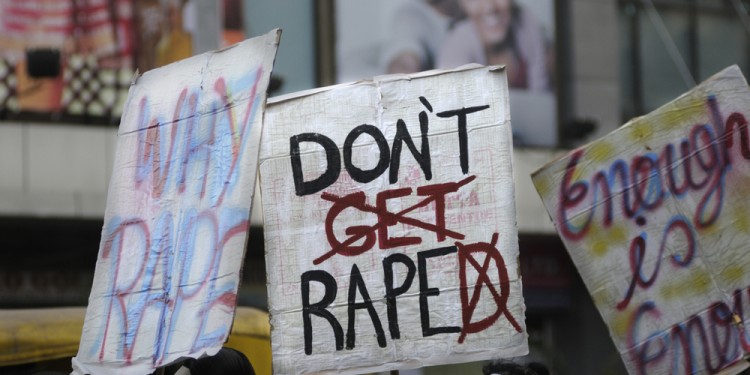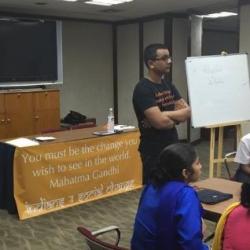Victim Blaming in India

Introduction
Victim blaming in India makes life very difficult for rape survivors. They are often told that the rape occurred because they made a mistake or provoked men to the point of rape. They are told ridiculous myths about rape and sex and made to shame themselves rather than stand up against their attacker.
Problem
The most popular form of victim blaming is telling the women that they must have dressed inappropriately, were in the wrong place at the wrong time, or must have just regretted having sex with the man. They are blamed for drinking, having sex lives, and even traveling with a male companion. All of these beliefs about victim blaming are symptoms of deeper patriarchal beliefs that stigmatize any action that women take.
Victim blaming not only makes it hard for these women to cope with what has been done to them, but it also makes it harder to prevent future rapes. Women are less likely to report rapes because they know they will be blamed and questioned endlessly. Men think they will get away with rape because of this and thus are much less deterred from committing rape.
The other biggest occurrence with victim blaming is claiming that all reports of rape are false. This is one of the biggest myths among misogynistic Indians. They will claim that a majority of rape cases are false and thus the victim is probably just lying. This prevents convictions and justice, and only makes life even more difficult for rape victims. In reality, while there are a few cases that are fake, the social stigma of rape drastically deters women from filing real cases, let alone fake ones.
Police officers continue to distrust women who report rapes thinking that decent women wouldn’t want to have rape cases registered. They will insult women by accusing them of having monetary motives or calling them prostitutes.
When the public sees people in authority making these unjust comments, it deems it acceptable for them to do so as well. The root of the problem is those in a position of influence, and therefore to rid the nation of victim blaming, they are the ones who need to be addressed and discouraged from making the statements.
Prevalence
“She has two children, and so far as I know, she is separated from her husband. What was she doing at a nightclub so late at night?” (West Bengal Sports Minister, Madan Mitra)
Many politicians are known for the statements that they have made that victim blame rape survivors. These add to a culture of rape by excusing rapists from their actions, only making it easier for them to commit rape and harder for women to report. This type of empowerment coming from men in power, makes it all too easy for the common man to think rape is okay if a woman is “doing something wrong.”
“Boys will be boys. They make mistakes.” (Mulayam Singh Yadav, Head of UP Samajwadi Party)
“Fashionable dresses worn by women, even in rural areas, are among the factors leading to an increase in rape cases. The police have no control over this matter.” (Dinesh Reddy, police director general, Andhra Pradesh)
On the death of rape victims, one rapist “explains:”
“When being raped, she shouldn’t fight back. She should just be silent and allow the rape.” (2012 Gang Rape Attacker)
One female police officer explains to the New York Times why victim blaming is wrong:
“If the woman victim can be held responsible for her dress or the late hours at which she is out, it is easier for officials to say that rape happens to women of bad character and loose morals. But that is not the reality of rape in India. Poor women are at the greatest risk of being raped. Also, most rapists are known to the victim. Dress and character have nothing to do with it.”
Possible Solutions
The public needs to hold officials responsible for comments made blaming victims. They should be voted out of office and punished for encouraging crime against women. Further action should be taken against police officers and lawyers/judges who question a woman’s intentions after having been raped. Only after these people in society are held accountable for what they say can we expect other members of society to avoid victim blaming as well.
We also need to set up support groups for victims so that they can get the support they need to deal with both the incident, and sadly, the victim blaming.
[Image Attribute: arindambanerjee / Shutterstock.com]



